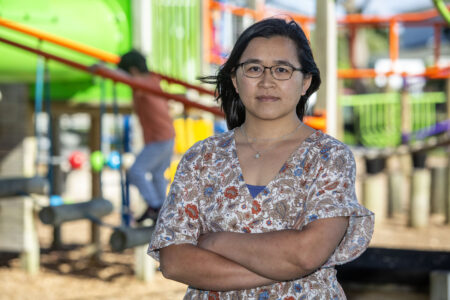
An east Auckland parent is publicly expressing strong opposition to some of the material to be taught in schools relating to gender and sexuality.
As reported previously, the Ministry of Education (MoE) has provided schools with guidelines to assist the preparation and delivery of sex education, which is part of the New Zealand Curriculum.
A 2020 MoE guide on relationships and sexuality education (RSE) for pupils in years 1-8 states schools are encouraged to question “gender stereotypes and assumptions”.
Identities that should be recognised and supported, according to the guidelines for primary school pupils, include lesbian, gay, bisexual, queer, intersex and transgender people.
Among the “Suggested learning intentions” is a section that states pupils should be able to “consider variations in puberty, including the role of hormone blockers”, which prevent a young person from going through puberty.
Mellons Bay School parent Katherine Chua says there are “significant health and safety concerns for children as they are not able to give consent to permanent life-altering ideologies which can tell them their body is wrong, just because if they do not fit the typical stereotypes for a boy or girl”.
“The RSE guidelines [for] year 1-8 specifically recommend teaching children about puberty blockers … I am highly concerned at the emerging realisation worldwide that these medications have been pushed on very poor scientific research, with evidence of permanent harm to children’s health.”
A MoE official attended a meeting at the school with parents about the RSE guidelines earlier this year.
Chua offered to arrange for Chinese-speaking translators to attend to help parents who needed them but the offer wasn’t taken up.
She believes that prevented some parents from participating meaningfully in the school’s health curriculum consultation and she’s disappointed the MoE has published the guidelines in English only with no translations.
Chua says she met with Mellons Bay School principal Colleen Margison and “encouraged her to be open and consult our whole school community by enabling translation as we have 1/4 of our families who speak ESOL [English as a second language]”.
She also printed a flyer detailing her concerns about the guidelines to distribute to other parents.
“I did that … handing out flyers and managing to explain in broken Mandarin to a lot of parents what was happening, that girls would be told they could become boys and vice versa.
“I went and stuck flyers under the windscreen wipers of as many cars as I could find.”
She says when she went to distribute them again the next day, Margison told her she was entitled to her opinion but if she kept handing out the flyer the school would have to take action against her.
Chua also made a verbal presentation, which was filmed and published online, about the issue to the school’s board.
MoE Hautu (Deputy Secretary) Te Tai Raro (North) Isabel Evans says Mellons Bay School’s staff and board are committed to supporting a culture where “diversity is valued and all learners/akonga and staff, including those who identify as LGBTQIA+, are disabled, have learning support needs, are neurodiverse, or from diverse ethnic communities, feel they belong”.
Evans says an information evening was held to communicate the work under way at the school to support student well-being with caregivers.
It featured an introductory presentation on the newly-released Mental Health Education Guide and the updated RSE guidelines.
“These guides provide advice around school governance, management and curriculum in English-medium schools,” Evans says.
“As such they are only published in English. However, as happened in this case, our local Te Mahau team can offer to run sessions with translators to support ethnic community groups’ participation in their school’s curriculum.
“This was a pre-consultation event aimed to provide information to caregivers about well-being education and signal the school’s desire for parents to participate in the upcoming health curriculum consultation.
“Caregivers were also provided the opportunity to submit questions in advance of the evening.”
The RSE guide recommends exploring gender stereotypes as a means of promoting critical inquiry, reflection, and social-action skills related to issues of equity, gender, body image, risk and safety, Evans says.
“Ministry curriculum guidance and endorsed resources do not promote teaching children their bodies are wrong.
“The RSE guide promotes challenging unhelpful stereotypes such as those that may limit aspirations, opportunities and careers.
“One of the aims of Mental Health Education is to support young people to develop the knowledge and skills to support their own well-being and that of others.
“Key learning in the RSE is organised according to curriculum levels which provides developmentally- and age-appropriate guidance on what teachers can include in the health curriculum.
“From year 7, ‘hormonal changes’ in puberty are described as a part of the key learning.”
Evans says parents and caregivers have the legal right to withdraw their children from any aspect of the health curriculum by writing to their school’s principal.









